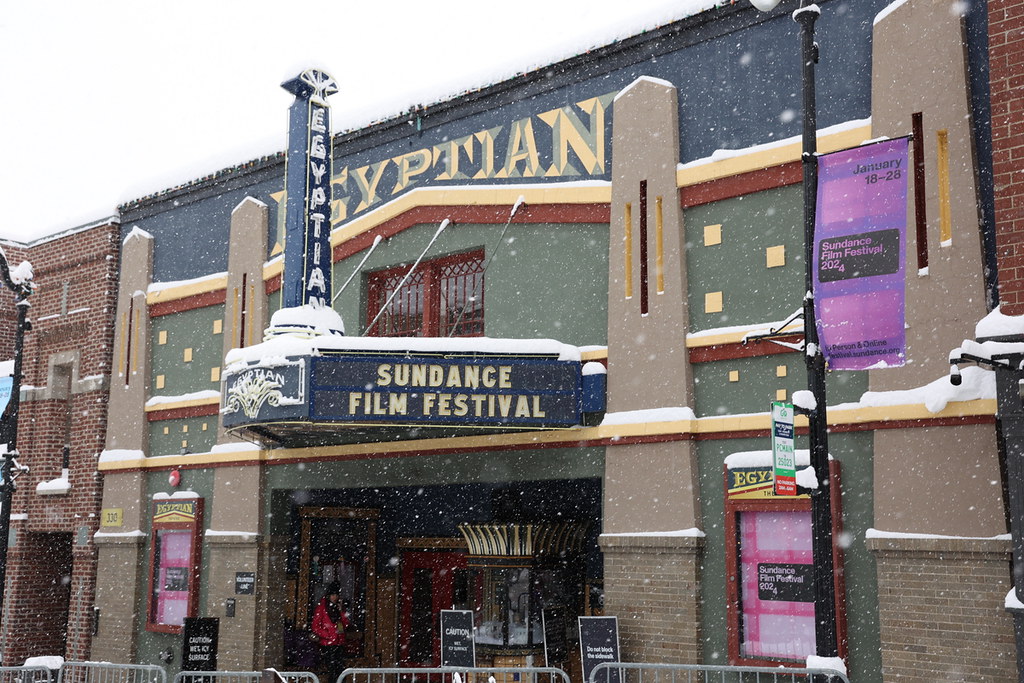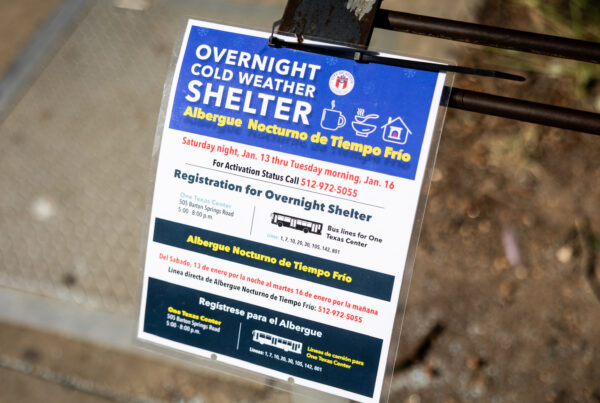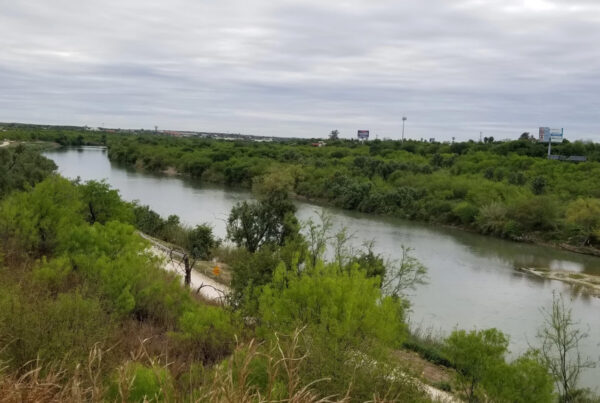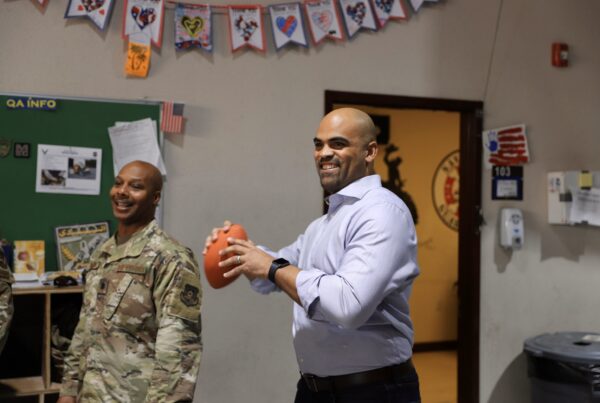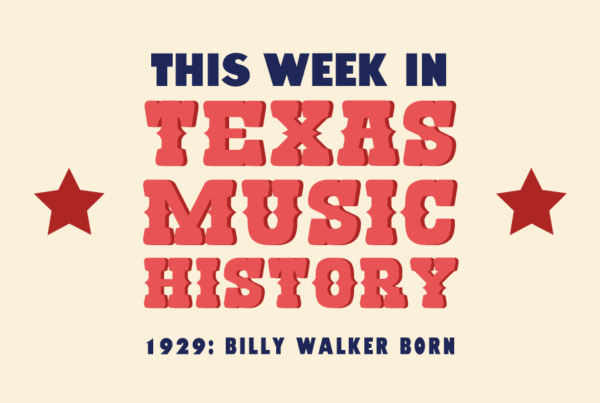Texas has more than its share of filmmakers and film festivals that celebrate their work. But for 40 years now, the kickoff to the calendar year of independent cinema has been happening to our west in Park City, Utah at the Sundance Film Festival.
Austin native Adam Montgomery has been part of the Sundance team for nearly 20 years. A senior manager for festival programing, he joined the Standard to share what Texas films made the cut this year. Listen to the interview above or read the transcript below.
This transcript has been edited lightly for clarity:
Texas Standard: How did you find your way from Texas to Utah for Sundance in the first place?
Adam Montgomery: Well, you know, I mean, I went to Texas A&M where they don’t even have a film school. And, I took it upon myself as part of the film society there to start a production arm.
And so I actually made the first short film made by a Texas A&M student, like sponsored by the school. And then, as soon as I graduated, I just moved to L.A., and I didn’t know anybody. I bought a book called “The Hollywood Job-hunter’s Survival Guide,” and I only read the first few pages. And on those first few pages, it had some good advice, which was get a job in a talent agency mailroom. So that’s what I did.
And from there I found my way, you know, working as an assistant. And then, I became a television production executive. And then I kind of just stumbled across Sundance and have been there for, like you said, almost 20 years.
So you’ve been there for half of the life of this festival — 40 years of Sundance. How does something that’s become so well known keep to its mission of promoting new and independent voices?
Well, I guess the answer to that is that, you know, we just watch movies. It’s really the community of filmmakers and independent artists who are out there pushing boundaries, doing different things.
I mean, I don’t want to say our job is easy because we did receive 17,435 film submissions this year, which is a record. I think my first year we have like 3,500, I believe. So it goes up exponentially every year.
But the hard job is getting through all of those submissions. Obviously, the easy job is kind of, you know, arguing amongst ourselves about which ones we think are the best. But it’s really the artists out there who are doing the work.
Are you seeing any by Texas filmmakers that are especially exciting to you?
Oh, yes, definitely. I mean, it seems like every year I think, you know, Texas has a very viable filmmaking community.
We see a lot of work coming out of Austin, obviously, where I’m from. And this year we have a number of projects – from feature films to episodic titles – that are made by Texas directors. Some about Texas, some aren’t. But yeah, I know it’s a really good selection this year, I think.
You want to drop any names there?
Yeah, I think I could come up with a few.
One of my favorite films from Texas-based filmmakers in the festival this year is by the Zellner Bros., Nathan and David, who are based in Austin. And they have a film called “Sasquatch Sunset” in our premiere section this year.
They’re kind of known for their offbeat sense of humor and sensibilities in general. And, many years ago, we played a series of short films that they did called “Sasquatch Birth Journal.” And so they kind of pick up along those lines with this latest film, which is just about four different Sasquatch, and a year in their life out in the forest.
And, you know, it sounds like it might be a little crazy and off the wall – because it is – but, you know, it has a lot of humanity to it and a lot of heart. And it’s definitely one you’re going to want to look out for. It also stars Riley Keough and Jesse Eisenberg. And if you don’t know Riley Keough, she also happens to be Elvis Presley’s granddaughter.
Let’s talk a little bit about how Texas has fared over the years. I understand the festival did a huge survey about the top films from the past 40 years, and Texas was rather well-represented in the top ten.
Yeah, well, I think it’s kind of hard for it not to be just because there’s so much talent coming out of the state. You know, it’s such a big state, as well, on top of that.
But we’ve played so many films over the years, that it would be hard to even narrow it down to which ones are my favorites. But, you know, obviously a lot of Richard Linklater titles that we’ve played. This year, he actually has two projects in the festival, one of which is an anthology documentary series that’s three episodes. It’s inspired by the book “God Save Texas” by Lawrence Wright.
And so each episode is by a different Texas filmmaker – a documentary. And they each do a story that relates to how they interact with their own hometown. So Richard Linklater does an episode of the Texas State Prison in Huntsville, because that’s where he’s from and just how the death row prison in the state of Texas is kind of just smack dab in the middle of Huntsville. It’s not like out of the city limits. And so it’s just how the people who live there interact and live with the prison, like, right in their backyard.
And then the other two episodes are directed by Iliana Sosa from El Paso and Alex Stapleton from Houston. So it’s really, you know, a series that really represents Texas. Each filmmaker just goes in and does what’s important to them and their individual hometowns.
Richard Linklater also has a film in our spotlight section called “Hit Man,” which actually was the biggest selling title out of the Cannes Film Festival last year. But it’s also based on an article by Skip Hollandsworth from 2001 about an undercover cop who poses as a hitman. And it’s just really fascinating. True story. And the star of that film is Glen Powell, who you might know from “Top Gun: Maverick.” And he’s been in a few of Rick’s other films and they wrote screenplay together. So, that’s definitely one to check out, too.
I wonder if you’ve picked up on any themes or stories coming from Texas directors or maybe movies featuring Texas that you’re seeing more of in recent years?
You know, I mean, I think it’s hard for think artists to ignore political landscapes, you know, things of that nature. So you see a lot of films not so much directly dealing with politics or anything like that, but more dealing with the underlying effects, you know, how people interact with one another in a society of polarization and things along those lines.
But, you know, that’s not necessarily specific to Texas. That’s just kind of something that we see popping up a lot in every film that we get.
Well, now I know that Sundance had to make some changes during the pandemic, but there has been something of a benefit here for Texans in that you no longer have to make a trip to see some of these films. Can you tell us about the online aspect?
Yeah, that’s right. I mean, we’re one of the only festivals who’s kept that going because we really feel like it provides, like you said, an accessibility aspect to our festival.
You know, Park City is not a big town. So, it’s not cheap to stay here when the festival is going on because we have so many – you know, 50,000 attendees. So it’s really wonderful to be able to offer online screenings to people who can’t be here.
And those screenings start on Jan. 25 and run until the end of the festival. Not every film is available. But a very, very good large selection of the titles that we’re premiering at the festival, you can watch from the comfort of your own home.
You should go to festival.sundance.org, and you can buy online screening tickets and you have a very long window for watching the film. We also record our in-person Q&A with the directors. So after the film is over, you can watch that and, you know, get a little bit more insight from the person and the people who made the film. So that’s nice, too.


